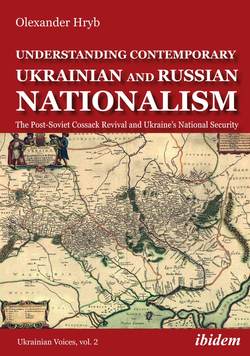Читать книгу Understanding Contemporary Ukrainian and Russian Nationalism - Olexander Hryb - Страница 20
На сайте Литреса книга снята с продажи.
2.2. Ethnicity and Its Place Within National Consciousness
ОглавлениеThe fact that the majority of scholars agree on the importance of ethnicity for national consciousness, but have different opinions as to the role it plays, requires a closer look. As previously described, “primordialist” Western as well as Soviet and post-Soviet traditions have stressed the continuing or perennial role of ethnic components in the transformation from ethnic to national consciousness. But what exactly are these components?
Smith pointed out that ethnic myths and collective memories locate a new, already national, community within a historic space and legitimize it, providing the status of an “ancient” one. Similarly, Bromley argued that diachronic information links between generations are extremely important for the existence of an ethnicos.9 Both authors include among these elements self-stereotypes of typical characteristics of a community, self-stereotypes of a common historical destiny (myth of origin, according to Smith), and images of a “homeland” or common territory of such a community. Ukrainian scholars tend to include here cultural archetypes which national consciousness inherits from the previous historical development of a community (Yaniv 1993; Mala 1996). In light of the above discussion, it is worth considering the following elements of ethnic heritage that are deemed to be important for national phenomenon: myths, self-stereotypes and cultural archetypes.
